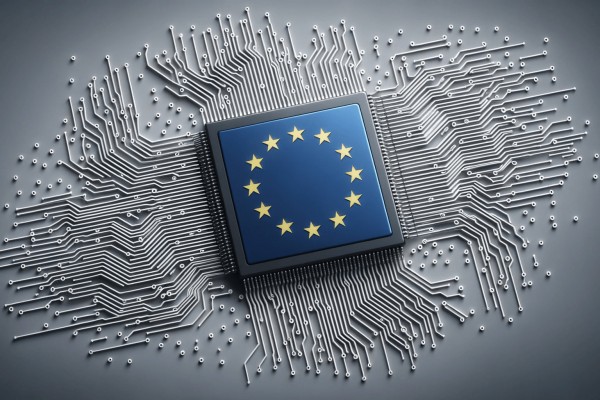On March 11, the Second Digital Day '22 World Conference was held in a webinar format. This was the second time that the BRICS Competition Law and Policy Centre was a partner of the event. Alexey Ivanov, director of the Centre, moderated the session "Sustainability and Innovation”.
The session was attended by Pietro Cipollone, member of the Governing Board and deputy governor of the Bank of Italy; Hans-Wolfgang Miklitz, professor at EU Robert Schuman Centre for Advanced Studies (RSCAS), Italy; Marco Checchi, chief executive officer of Pelliconi & C. S.p.A.; Najib Hage Chahine, professor at Saint Joseph’s University, Lebanon, president of the Lebanese International Arbitration Center.
Opening the meeting, Alexey Ivanov stressed that "sustainability and, at the same time, innovation and the creation of the new are kind of conflicting concepts," which is why the interconnection of these phenomena is best seen at the intersection of different disciplines (law, finance, and public administration), actors (private and public), and geographies (different regulatory systems and legislations).
Pietro Cipollone noted the interconnectedness of climate, sustainability and innovation in the financial sector. After signing the Paris Climate Agreement in 2015, he recalled, the EU launched the Action Plan on Financing Sustainable Growth to redirect capital flows to sustainable development, manage climate-related financial risks, and promote financial and economic transparency in EU structures.
Mr. Cipollone also highlighted several green European initiatives:
"The Eurosystem (which includes the European Central Bank and the national central banks of the euro area countries) has developed an important market infrastructure for the settlement of payments. For example, the TARGET Instant Payment Settlement (TIPS) in euros. Its carbon footprint is lower than that of cryptocurrencies. The ECB has also launched a "digital euro" project, which will help reduce the ecological footprint of printed banknotes."
The speaker stressed that the Bank of Italy, of which he is deputy governor, also has a policy to reduce its ecological footprint:
"In 2020, the bank reported a 20% reduction in carbon emissions compared to last year, a 5% reduction in electricity consumption and a 14.5% reduction in water consumption."
Hans-Wolfgang Miklitz suggested looking at sustainability through the prism of private law on the example of e-commerce.
"There is a law in the EU according to which a customer can return a product ordered online for free if he or she does not like it. Incredibly convenient, but here are some figures for Germany. The total return rate is 280 million parcels, or 487 million items. This means that about 16% of orders already delivered are returned (mostly textiles and footwear). In 2018 it costed Germany €5.4 billion. The problem is that the EU has quite strict rules on the use of raw materials, production, delivery, distribution of goods, disposal of waste, etc., but they do not correlate in any way with the rules of e-commerce. And a business with even the most environmentally friendly principles will fall into this trap, because it is so easy for the customer to return the goods. What to do? Put the cost on the consumer. But that will cause outrage”.
Mr. Miklitz stressed the need to rethink and harmonize public and private law on a large scale, despite the complexity of the task. That would be the real innovation.
The speakers also talked about how sustainability principles affect business competitiveness. Marco Checchi pointed out that the best professionals and workers of the new generation prefer "sustainable" companies.
"In the PwC survey, about 70% of respondents said that having a strong sustainability plan in place positively influenced their decision to start working there. More than a third said they consciously invested more time and effort in working for firms that adhered to sustainability principles. And 30% said they left a job because of company's lack of sustainability plan. Most said that business should play an important role in advancing sustainability”.
So it is beneficial for companies to respect the environment and the interests of local communities, the speaker concluded.
Najib Hage Chahine told how the lack of sustainability affects litigation proceedings in Lebanon. Litigation uses a lot of paper (for filing, signing agreements between parties, correspondence between parties, etc.). According to one study, it can take as many as 20,000 trees to offset the carbon footprint of a major international arbitration, the speaker noted.
"Many proceedings still require face-to-face meetings, flights, hotel stays, and courier work, not to mention long meetings and coffee breaks with plastic cups. Meanwhile, 80% of court cases are standard cases that could be solved remotely via video link, and only 20% are really complex cases that require personal presence. In other cases, it is high time to reduce the carbon footprint of their activities: resort to remote working mode, electronic signatures and document management".
At the end of the meeting, participants answered questions from Edoardo Zanasi, a student at the University of Florence, and Emmanuele De Napoli, a researcher at the University of Florence.




